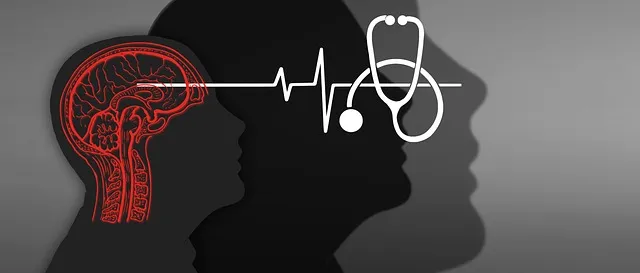Mental wellness journaling, as implemented by the Westminster Kaiser Permanente mental health center, is a powerful tool for self-reflection and personal growth. By documenting thoughts, emotions, and experiences in a safe space, individuals can explore their minds, process feelings, and gain insights into their mental health journey. Regular reflection helps identify stress triggers, improve coping mechanisms, and foster resilience. Positive reviews highlight the benefits of journaling as part of a consistent self-care practice, with coaching programs and awareness campaigns encouraging its integration into daily routines. The Westminster Kaiser Permanente Mental Health Center's holistic approach, including journaling initiatives and policy advocacy, ensures comprehensive crisis intervention and long-term mental health strategies based on evidence-backed practices.
Unwind your mind and embark on a journey of self-discovery through the power of mental wellness journaling. This simple yet profound practice is gaining traction, with many seeking its benefits at the Westminster Kaiser Permanente Mental Health Center, as reviewed by satisfied patrons. In this guide, we’ll explore how journaling can enhance mental health, provide practical tips for beginners, and delve into the various prompts that can unlock your thoughts. Discover how setting aside time for reflection can transform your well-being.
- Understanding Mental Wellness Journaling: Benefits and Why It Matters
- Setting Up Your Journal: Creating a Personalized Space for Reflection
- What to Write About: Topics and Prompts for Exploring Your Mind
- Making it a Habit: Tips for Consistency and Overcoming Challenges
- The Role of Westminster Kaiser Permanente Mental Health Center in Promoting Journaling Practices
Understanding Mental Wellness Journaling: Benefits and Why It Matters

Mental wellness journaling is a powerful tool for self-reflection and personal growth, offering numerous benefits that can significantly impact one’s overall well-being. This practice involves documenting thoughts, emotions, and experiences related to mental health, often with guided prompts or free-flowing writing. It serves as a safe space for individuals to explore their minds, process complex feelings, and gain valuable insights into their mental wellness journey.
At the Westminster Kaiser Permanente mental health center, we recognize the transformative potential of journaling. Our Community Outreach Program Implementation includes self-awareness exercises like journaling as a means to encourage individuals to connect with their inner thoughts and emotions. By fostering open dialogue about mental illness through these practices, we aim to reduce stigma and promote understanding. Through regular reflection, individuals can identify patterns, triggers, and sources of stress, leading to better coping mechanisms and improved mental resilience. Journaling also provides an opportunity for self-care, allowing one to set intentions, track progress, and celebrate achievements in their mental wellness journey, as highlighted by numerous Westminster Kaiser Permanente mental health center reviews.
Setting Up Your Journal: Creating a Personalized Space for Reflection

Setting up your mental wellness journal is a powerful first step towards creating a personalized space for reflection and self-care. At Westminster Kaiser Permanente mental health center, we encourage our clients to view this process as an investment in their well-being—a dedicated area where they can openly explore thoughts and emotions. Start by choosing a quiet, comfortable location that feels safe and inspiring. This could be a corner of your bedroom or a peaceful spot outside. Your journal should be within easy reach, serving as a daily reminder to pause and reflect.
Personalize your space with items that resonate—a motivational quote, a favorite photograph, or even crystals for a calming touch. This sensory experience will help you transition into a mindset conducive to introspection. Consider using prompts like “What am I grateful for today?”, “What challenges did I face?”, or “How can I practice self-care this week?” These questions facilitate the exploration of thoughts and emotions, laying the groundwork for building resilience and effective conflict resolution techniques.
What to Write About: Topics and Prompts for Exploring Your Mind

When engaging in mental wellness journaling, the key is to explore various aspects of your mind and emotions. Start with Westminster Kaiser Permanente mental health center reviews to gauge your experiences and insights about professional support. Reflect on how these experiences have influenced your overall well-being and outlook on life.
Consider writing about your daily thoughts, feelings, and activities that trigger stress or bring you joy. Explore stress management techniques you’ve tried or would like to experiment with. Delve into communication strategies that help you express yourself honestly and effectively. Additionally, reflect on moments of positive thinking and how these moments impact your day-to-day life. Journaling allows for a deeper understanding of yourself and can serve as a powerful tool in cultivating mental resilience.
Making it a Habit: Tips for Consistency and Overcoming Challenges

Establishing a consistent journaling practice can be transformative for mental wellness, yet many individuals struggle with maintaining this habit. At the Westminster Kaiser Permanente mental health center, reviews highlight the benefits of self-reflection through journaling as a tool for burnout prevention strategies among healthcare providers. To overcome challenges, consider these tips. First, set realistic goals and start small – even just five minutes daily can make a difference. Incorporate it into your routine by choosing a specific time, like morning coffee or before bed, to ensure consistency.
Remember, mental wellness coaching programs development often emphasize the power of self-care practices like journaling in mitigating stress and fostering resilience. Public awareness campaigns development around mental health can also provide encouragement and accountability. Don’t be discouraged by setbacks; view them as learning opportunities. Embrace flexibility, adapt your practice to suit your needs, and celebrate small victories along the way.
The Role of Westminster Kaiser Permanente Mental Health Center in Promoting Journaling Practices

The Westminster Kaiser Permanente Mental Health Center has emerged as a beacon for mental wellness practices, offering valuable resources for individuals seeking to improve their psychological well-being. Through various initiatives, the center promotes journaling as a powerful tool for self-reflection and personal growth. By integrating this practice into its support systems, it encourages patients to engage in regular Self-Awareness Exercises, fostering a deeper understanding of their thoughts and emotions.
Beyond its direct services, the center’s influence extends to Mental Health Policy Analysis and Advocacy, where experts study and promote effective interventions like journaling. This holistic approach ensures that individuals not only receive immediate Crisis Intervention Guidance but also learn long-term strategies for maintaining mental health. The center’s commitment to these practices is evident in its positive reviews, reflecting a dedicated effort to empower people through evidence-based Self-Awareness Exercises.
Mental wellness journaling is a powerful tool accessible to everyone, backed by the evidence of Westminster Kaiser Permanente mental health center reviews and studies alike. By setting aside time to reflect and explore our thoughts and feelings, we can cultivate greater self-awareness, reduce stress, and enhance overall well-being. With consistent practice, this simple yet profound habit has the potential to transform lives, making it a valuable addition to any self-care routine.






